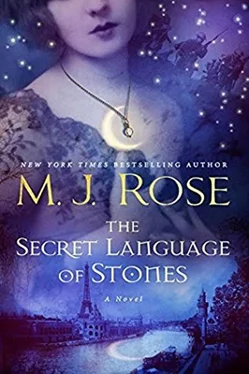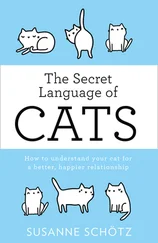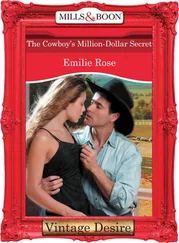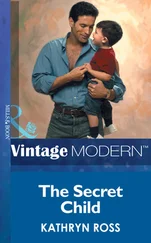I found Grigori waiting for me inside the café, and we were seated by the window. I thought I’d tell him right away about the man in the alcove but, still upset, I wasn’t yet ready.
“I’ve been looking forward to this all afternoon. You always light up a room, do you know that? With your shining copper hair and glowing skin. You’re not like anyone else, Opaline. I think that’s what I like about you the most.”
He looked at me intently, so intently I needed to glance away.
“Have I embarrassed you?” He laughed.
“A little.”
“I should have held back saying that until we’d started drinking. Embarrassment is always easier to take with a sip of wine.”
He gestured for the waiter and asked him to fill my glass from the waiting bottle of champagne-one of the few items not rationed.
Grigori held his flute up to me, and we clinked our glasses.
“To an end of these blasted sirens. May we only hear music from now on.”
We both drank, but while I sipped, he downed the first glass quickly and motioned for the waiter again.
Through the glass windows, I watched the faces of people who passed by.
“You can see the war in their eyes, can’t you?” he asked. I nodded. “Yes,” he continued, “Parisians trying to cope with the war, deal with the death and the sadness, and yet, at the same time, not forget this is Paris and there are still dancers and painters, sculptors and poets, designers and philosophers living and working and creating while the war rages on.”
Grigori took my hand. “Is it the war that makes you work so hard? Play so little?” His brown-diamond eyes glittered with mischievousness and the wine he’d drunk so fast.
“It doesn’t seem the right time to be frivolous.”
“No, but it’s not healthy for you to spend as much time as you do in the workshop. It’s one thing to hold down a job, but all the extra hours you spend meeting with the never-ending line of women who seek you out and making those talismans for them. It’s summer, yet your skin is as pale as it was this winter.”
“It hardly seems like I’m making a sacrifice considering what their husbands and brothers and sons have given up.”
Something hardened in Grigori’s handsome face. I’d said the wrong thing. His bitterness at having been sent home from the war with a lame leg was never far from the surface. What bothered him more: the infirmity that kept him from returning to the front, or his jealousy that his younger brother, Anna and Monsieur’s heroic son, still fought?
“No, I suppose not. You aren’t there and you should be thankful for that.”
“Are you thankful?”
He leaned in. “That’s a difficult question to answer. Of course, I am relieved. You can’t imagine how terrible it is. The living conditions are appalling. Sleeping in those wet, rotten, mud-filled trenches… and the cold… and the sights… I see them in my dreams… the mutilations, the blood… the gore…”
Giving up on the waiter, he poured himself more champagne and gulped it down.
“And yet, for all the relief, there is an equal amount of guilt. But the only way to avoid that, I fear, is to die.” He laughed sarcastically. “And I don’t plan to do that.”
Which was just as well, I wanted to tell him. Even ghosts spoke of guilt.
The waiter appeared again and asked if we were ready to order. I requested the Dover sole and Grigori the beef.
“Rations,” the waiter said, with a sorry shake of his head. “Can I suggest the gentleman also order the fish?”
After the waiter departed, Grigori took up my hand again.
“Let’s not talk of the war.” He smiled. “There is so much beauty still left in the world.” He turned to the window. “Look at the moon. At the elegant, wide avenue with such luxurious chestnut trees. And the beautiful Beaux Arts buildings. At the lovely mosaic mural on that shop. The design is delightful, and the colors glow, don’t they?”
I took in each of the sights Grigori mentioned, enjoying his ability to notice and describe beauty. As I looked at the mosaics, commenting that they did glow, a man outside the restaurant slowed down as he passed by the window and looked in, right at us. That might not have been unusual except for his expression. Under his hat, his face pinched. His mouth pursed in a narrow line. He glanced away but then turned back again, something sly in his action. As if sneaking another look.
I shivered and crossed my arms, my fingers feeling the gooseflesh on my bare skin.
“What is it?” Grigori asked.
My eyes followed the stranger as he disappeared around the corner.
“Opaline?”
“Did you see that man?”
“No, why, do you know him?”
I shivered again. Was it possible?
“I think I’ve seen him before.”
“Where? Did he do something to you?”
I was surprised by the protective tone I heard in his voice.
“Yes. No. He might be a German spy.”
“Opaline! How on earth would you know that? What are you talking about?”
I told him about the vault and the mortar missing from the wall and how I hadn’t been sure if I’d been seen, but now thought perhaps I had been.
Grigori’s face paled. “This is terrible. And why do you now think you’ve been seen?”
I explained about the attack on my way to the restaurant. “He pulled me inside and shoved a piece of paper into my hand and then pushed me toward the wall. I fell. He fled. And when I looked at the note he’d passed me, all it said was Arretez-vous , Mademoiselle .”
“ ‘Stop’? That’s all it said?”
“Yes.”
“And you think it was the same man?”
“Yes, the one I saw through the mortar. The one who just passed. He’s following me.”
“And you waited until now to tell me you’d been assaulted? Not when we first sat down?”
“I was in shock. Shaken. I didn’t want to think about it.”
“We must think about it, though. If there are spies meeting somewhere beneath the Palais and one of them is following you, we must do something. Have you told the authorities?”
“No, I planned on telling your father, but first he was with a client and then… I know how much he hates the idea of having to go to the police and bringing any extra attention to the store and what I’m doing. It’s Russia, isn’t it? That makes your father so wary of the police?”
Grigori nodded. “But I’m not. Let me take care of it for you. Tomorrow draw me a schematic of where in the vault you were and I’ll take it to the police. No need for you to relive it again.”
“Would you? That’s really kind of you, Grigori.”
He waved off my thanks. “And this way we can leave my father out of it.” He sighed. “He’s such a difficult man. So stuck in his ways. So sure those are the right ways.”
“Why is there so much discord between you?” A brazen question, but their conflicts were disturbing.
“He wishes I was like my brothers.”
“You mean, because you aren’t a jeweler?”
Grigori shook his head. “He’s disappointed in me that way, yes. But it’s deeper. Leo and Timur are both his sons with Anna. Yes, they inherited my father’s talent, but also Anna’s warmth and gentleness.”
I nodded. I remembered.
“I, on the other hand, am my mother’s son. And Papa… well… quite simply… he hated my mother.”
“But Anna speaks of you as if she is your mother. She loves you, Grigori.”
“She tries to love me for my father’s sake. But to both of them I will always be Natalya’s son.”
“How did your mother die?”
“She didn’t die.”
“I thought your father had been widowed.”
“No, my mother is in Russia. They were divorced when I was three years old. I lived with my mother until I turned twelve and then moved in with my father, Anna, Timur, and Leo. Papa married Anna, who also worked in Fabergé’s studio, very soon after the divorce.”
Читать дальше












